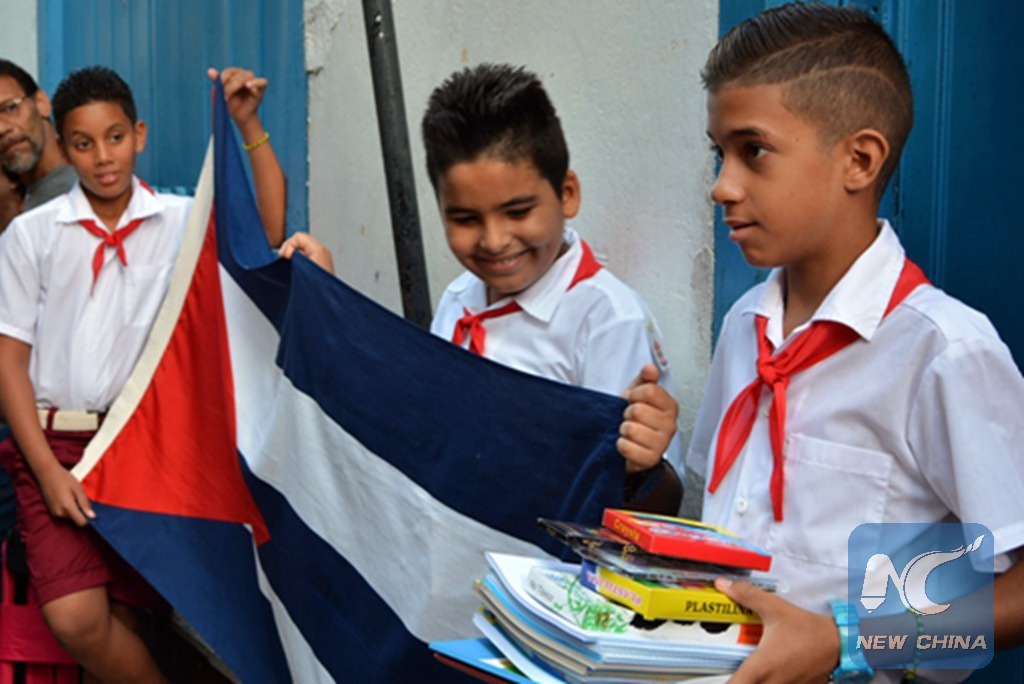
Children from the Simon Rodriguez primary school in Old Havana begin their school year on September 5, 2016. (Xinhua/Joaquín Hernández)
HAVANA, Sept. 5 (Xinhua) -- About 2 million Cuban students returned to school and university all over the island on Monday, amid reforms in the Caribbean nation's educational system.
The streets of Havana on Monday were filled with kids wearing traditional red, white and blue uniforms and parents overseeing the start of a new school year.
"Today is my first day of school and I'm very happy because I want to learn how to read and write and meet new friends," Enrique Perez, a 6-year-old first grader, told Xinhua.
For others, the start of the school year represents an opportunity to earn a spot in one of the country's universities.
"We're really fortunate to have an education system that includes every teenager in Cuba. We receive the opportunity to go on and study at the college level, depending on our performance," said Thalia Valladares, a 17 year-old high-school student.
This school year, the Education Ministry has set priorities, including increasing the quality of teachers, especially among newly qualified ones, as well as boosting cooperation between families and schools to help students learn better.

Children from the Simon Rodriguez primary school in Old Havana begin their school year on September 5, 2016. (Xinhua/Joaquín Hernández)
"It is very important for our teachers to develop new educational tools and provide our students with quality classes in any given subject," Ena Elsa Velasquez, the island' s Minister of Education, told a press conference last week.
According to Velasquez, across the island, schools were refurbished and painted, millions of books were printed out for free distribution and new desks and other furniture were bought for over 10,000 schools.
"The Cuban government assigned 106 million U.S. dollars to guarantee a successful start to the school year as the education of children and young adults has always been a top priority in our country," she added.
In higher education, over 220,000 students return to class in the island's 50 universities of the island with new reforms that look to make graduates more competitive internationally.
Starting this year, most college degrees in the nation will decrease to four years instead of five and all university students must learn English at a professional level in order to graduate, a sign of changing times.
"Over 87,000 students will start studying this year for a college degree in numerous fields, which represents a significant increase from last year," Jose Saborido, Cuba's Minister of Higher Education, told the press conference.
From pre-school until the final year of college, Cuban students receive a free education that also provides all textbooks, notebooks and other materials needed.
Cuba allocates around 23 percent of its budget to education, making it one of the countries in the world that spends the most in this field.

